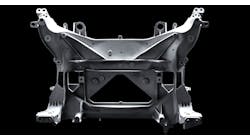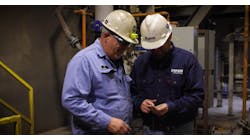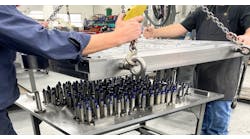By Lane Imberman
Although labor unions lost their fight in the 111th Congress for the Employee Free Choice Act — the “card-check” measure that would have simplified the standards for unionization of workplaces — they seem to be winning their effort to make organizing easier, and that is the result of one man, Craig Becker, who now holds a seat on the National Labor Relations Board.
The NLRB is an independent federal agency that is responsible for conducting labor-union elections and with investigating and remedying unfair labor practices, either within a union or in union-employer relations. The NLRB is overseen by a five-person board and a general counsel, all of whom are appointed by the President of the United States with the consent of the U.S. Senate.
In February 2010, President Obama gave Becker an interim appointment to the NLRB after it became obvious that the U.S. Senate would not approve his nomination in the normal manner. During debate on his nomination, Senator Ben Nelson (D-NE), said, “… Mr. Becker’s previous statements strongly indicate that he would take an aggressive personal agenda to the NLRB.”
What is the NLRB?
The NLRB was established in 1935 by the National Labor Relations Act, or Wagner Act, the federal legislation that limits employers’ responses when workers in the private sector form labor unions, engage in collective bargaining, and take part in strikes and other forms of concerted activity in support of their demands. The Wagner Act created a new system of industrial democracy and it continues to govern the labor relations in the U.S. Its sponsor, Senator Robert Wagner of New York, called secret-ballot elections the linchpin of American democracy and asserted they would work in industrial settings too. The Wagner Act grants employees the right to vote if they want to be represented by a union. In the hearings that preceded the law’s passage, Sen. Wagner said:
“We say under Government supervision let the workers themselves … go into a booth and secretly vote, as they do for their political representatives, in a secret ballot, to select their choice.”1
Now, the National Labor Relations Law is administered by the board of the NLRB. The board members decide on the detailed rules that govern union and management behavior, and how elections should be conducted. Historically, the NLRB has always tried to balance what often are conflicting interests of unions, employers, and employees. Over the years since 1935, it has done a pretty good job at balancing the concerns of labor and management in its rulings. Those foundries, diecasters, and other manufacturers that have brought complaints regarding the Board’s decisions almost invariably are those that have lost the organizing elections at their plants.
The new guy
Prior to his appointment to the NLRB, Becker was the associate general counsel for both the Service Employees International Union and the AFL-CIO, the umbrella organization of most unions in the U.S. Before that, Becker taught at the UCLA Law School and has written extensively in a number of the law reviews.
One of his most important publications was “Democracy in the Workplace: Union Representation Elections and Federal Labor Law,” published in the Minnesota Law Review in 1993. In that article, he announced:
“… Employers should be stripped of any legally cognizable interest in their employees’ election of representatives…just as U.S. Citizens cannot opt against having a Congressman, workers should not be able to choose against having a union as their monopoly-bargaining agent.”2
Becker also believes employers should have no rights to campaign against unions, or to question voter eligibility, union campaign conduct, or unit determination. “Only the employee constituency and their potential union representative should be heard,”3 he has said.
In his 1993 article, Becker claimed that Sen. Wagner’s logic justifying the original 1935 law — the secret-ballot elections between candidates — is simply wrong. Rather, Becker believes:
“… Lawful as well as unlawful employer activity is distorting the process of labor representation … employers should have no legally sanctioned role in union elections ...” 4
This no doubt would surprise Senator Wagner, were he still alive.
Why change the law?
It should be plain that unions want to ease the rules governing organizing changed because union membership has declined so sharply. In the 1950s, for example, unions represented about 35% of employees in private industry. Now, private sector unionization has dropped to 7.2%. This decline has occurred for a variety of reasons:
• Many of the abuses of the 1930s — age, sex, and race discrimination — are now outlawed by Federal and State laws. Employees no longer need union protection.
• The growing sophistication of modern human resource practices, including performance-based compensation systems that build such strong labor management bonds that employee interest in unionization is negated.
• The relative decline of the heavy industries in which unionization originally flourished — steel, auto, and old-line gray iron and steel foundries — mean that the number of candidates for union membership have dwindled.
• Employees have a growing awareness of globalization, which means they know they are no longer competing against a diecaster nearby but rather with one overseas. This means unions have less leverage at the bargaining table.
• Finally, faced with international competition, metalcasters now try harder to stay union-free and maintain the flexibility needed to compete in world markets.
The failed “Free Choice” act
The Employee Free Choice Act would have allowed unions to organize a plant’s workers simply by obtaining “authorization cards” from a majority of them, without a secret-ballot election. Though the measure passed the House of Representatives, EFCA ran into such stiff opposition in the Democratic-controlled Senate that some “compromises” were offered. These called for “quickie” elections to be held within five-to10 days after an organizing petition was filed.
Union-free manufacturers, including metalcasters, objected strongly. They said quick elections would not give them time to present their cases to employees: They want the chance to point out to their employees that the high costs of negotiating labor contracts, restrictive work rules resulting in wasteful practices, and rigid contracts preventing quick reactions to changing market conditions all hurt employers and employees’ job security. Ex-employees of Pemco Die Casting in Bridgman, MI, Quad-Cast Inc. in Moline, IL, or Citation/Dycast in Lake Zurich, IL, can attest to this. All three operations are closed, due largely to the labor costs imposed by their union contracts.
But, notwithstanding the defeat of EFCA, since Becker’s appointment the NLRB has demonstrated a more pro-union stance. It is now revisiting the 2007 Dana case5 that requires a secret-ballot election, if employees petition for one, even if their employers had agreed to card-check unionization without a vote. Overturning prior decisions like Dana will simplify the jobs of union organizers. And, the NLRB is proposing that employers be required to post notices informing employees of their right to unionize.6
How to avoid these expensive problems
Astute metalcasting executives will realize the best way to avoid these hassles is to treat their employees well, so they won’t want to unionize. These executives understand that money is not the real reason employees seek to join unions. Rather, workers want unions because they believe they are not being treated fairly, openly and honestly — without partiality or favoritism.
Some metalcasting executives are shocked when they receive the NLRB notification that a union has filed an election petition for their workers. These operators have misread employee attitudes because they have not taken the time to obtain an expert assessment of their plant floor sentiments.
The first step to avoid such an unpleasant surprise is to test the temperature in the pattern shop, in coremaking, on the pouring floor, and especially in grinding, where most of their employees work, touching up the castings. This cannot be done with a simple paper-and-pencil Employee Audit that many attorneys recommend. Those surveys rarely uncover the nuances of employee thinking.
The best way to understand employee attitudes is through face-to-face interviews by expert, outside interviewers. Work ers will speak more openly to an outsider than to any member of the management for fear of retribution. Also, the ability to discern what employees actually mean by what they say is critical, takes a good deal of experience, and requires knowledge of foundry and diecasting industry practices. (See “Will Your Employees Go Union?” Foundry Management and Technology, Sept. 2008, and “Which Casting Companies Are Most Likely to be Unionized,” Modern Casting, Nov. 2009.)
The next step is to make the necessary changes to eliminate irritants to employee morale. Often, this requires supervisory training tailored to the specific problems of a particular metalcaster. Canned training purchased online is inexpensive, but usually ineffective. (See “Casting Profitability – Reality vs. Rhetoric,” Die Casting Industry Links, Oct. 2006)
The Great Recession of the past two years has adversely affected virtually everyone in the metalcasting industry. Since buyers of castings are desperate to cut costs, only the most efficient producers with the best employee morale and productivity, and lowest costs, will survive. (See “What Detroit Means to Die Casters,” Die Casting Industry Links, Aug. 2007)
Ask your employees to check the company parking lot. Ask them to count the Hondas, Kias, and Toyotas they see. Those cars and trucks weren’t made by unionized workers at unionized plants. And there is a lesson in that example, for them and for you.
Footnotes
1.: 1935 Senate Hearings reprinted in 2 NLRA Legislative History, pg.1617,2028.
2.: Becker, Craig, “Democracy in the Workplace: Union Representation Elections and Federal Labor Law,” University of Minnesota Law Review, 1993, pp. 500-501.
3.: ibid, pg. 587.
4.: ibid, pg. 501.
5.: 351 NLRB 434, 2007.
6.: Greenhouse, Steven, “US Proposes Posted Notice of the Right to Unionize,” New York Times, Dec 22, 2010, Pg. B3)
| Lane Imberman is a researcher and writer with Imberman and DeForest Inc., management consultants specializing in improving managerial effectiveness, supervisory training, and increasing employee productivity. Contact him at [email protected] or tel. 847-733-0071. Copies of the referenced articles are available at no charge. |









